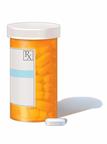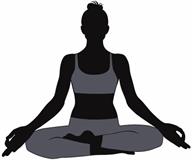Attention Deficit Hyperactivity Disorder, Adult
Attention deficit hyperactivity disorder (ADHD) is a mental health disorder that starts during childhood. For many people with ADHD, the disorder continues into the adult years. Treatment can help you manage your symptoms.
There are three main types of ADHD:
Inattentive. With this type, adults have difficulty paying attention. This may affect cognitive abilities.
Hyperactive-impulsive. With this type, adults have a lot of energy and have difficulty controlling their behavior.
Combination type. Some people may have symptoms of both types.
What are the causes?
The exact cause of ADHD is not known. Most experts believe a person's genes and environment possibly contribute to ADHD.
What increases the risk?
The following factors may make you more likely to develop this condition:
Having a first-degree relative such as a parent, brother, or sister, with the condition.
Being born before 37 weeks of pregnancy (prematurely) or at a low birth weight.
Being born to a mother who smoked tobacco or drank alcohol during pregnancy.
Having experienced a brain injury.
Being exposed to lead or other toxins in the womb or early in life.
What are the signs or symptoms?
Symptoms of this condition depend on the type of ADHD.
Symptoms of the inattentive type include:
Difficulty paying attention or following instructions.
Often making simple mistakes.
Being disorganized.
Avoiding tasks that require time and attention.
Losing and forgetting things.
Symptoms of the hyperactive-impulsive type include:
People with the combination type have symptoms of both of the other types.
In adults, this condition may lead to certain problems, such as:
Keeping jobs.
Performing tasks at work.
Having stable relationships.
Being on time or keeping to a schedule.
How is this diagnosed?
This condition is diagnosed based on your current symptoms and your history of symptoms. The diagnosis can be made by a health care provider such as a primary care provider or a mental health care specialist.
Your health care provider may use a symptom checklist or a behavior rating scale to evaluate your symptoms. Your health care provider may also want to talk with people who have observed your behaviors throughout your life.
How is this treated?
This condition can be treated with medicines and behavior therapy. Medicines may be the best option to reduce impulsive behaviors and improve attention. Your health care provider may recommend:
Stimulant medicines. These are the most common medicines used for adult ADHD. They affect certain chemicals in the brain (neurotransmitters) and improve your ability to control your symptoms.
A non-stimulant medicine. These medicines can also improve focus, attention, and impulsive behavior. It may take weeks to months to see the effects of this medicine.
Counseling and behavioral management are also important for treating ADHD. Counseling is often used along with medicine. Your health care provider may suggest:
Follow these instructions at home:
Medicines

-
Take over-the-counter and prescription medicines only as told by your health care provider.
-
Talk with your health care provider about the possible side effects of your medicines and how to manage them.
Alcohol use
-
Do not drink alcohol if:
Your health care provider tells you not to drink.
You are pregnant, may be pregnant, or are planning to become pregnant.
- If you drink alcohol:
- Limit how much you use to:
Know how much alcohol is in your drink. In the U.S., one drink equals one 12 oz bottle of beer (355 mL), one 5 oz glass of wine (148 mL), or one 1½ oz glass of hard liquor (44 mL).
Lifestyle

General instructions
-
Learn as much as you can about adult ADHD, and work closely with your health care providers to find the treatments that work best for you.
-
Follow the same schedule each day.
-
Use reminder devices like notes, calendars, and phone apps to stay on time and organized.
-
Keep all follow-up visits. Your health care provider will need to monitor your condition and adjust your treatment over time.
A health care provider may be able to recommend resources that are available online or over the phone. You could start with:
Attention Deficit Disorder Association (ADDA):
add.org
Contact a health care provider if:
-
Your symptoms continue to cause problems.
- You have side effects from your medicine, such as:
Repeated muscle twitches, coughing, or speech outbursts.
Sleep problems.
Loss of appetite.
Dizziness.
Unusually fast heartbeat.
Stomach pains.
Headaches.
-
You are struggling with anxiety, depression, or substance abuse.
This symptom may be an emergency. Get help right away. Call 911.
Take one of these steps if you feel like you may hurt yourself or others, or have thoughts about taking your own life:
-
Go to your nearest emergency room.
-
Call 911.
-
Call the National Suicide Prevention Lifeline at 1-800-273-8255 or 988. This is open 24 hours a day
-
Text the Crisis Text Line at 741741.
Summary
-
ADHD is a mental health disorder that starts during childhood and often continues into your adult years.
-
The exact cause of ADHD is not known. Most experts believe genetics and environmental factors contribute to ADHD.
-
There is no cure for ADHD, but treatment with medicine, cognitive behavioral therapy, or behavioral management can help you manage your condition.
This information is not intended to replace advice given to you by your health care provider. Make sure you discuss any questions you have with your health care provider.

